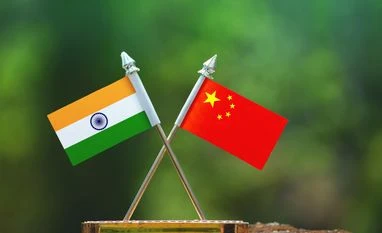Chinese President Xi Jinping and Prime Minister of India Narendra Modi reached “an important common understanding on improving and developing China-India relations” at the BRICS Summit in Kazan, Russia, according to Chinese Foreign Ministry Spokesperson Lin Jian. Speaking at an evening briefing on Thursday, Lin emphasised that the two nations are committed to strengthening both diplomatic and economic ties, signaling a shift toward closer cooperation between the Asian powers.
Lin said President Xi and PM Modi were aligned on a strategic and long-term vision for bilateral ties. “They agreed to view and handle China-India relations from a strategic height and long-term perspective,” Lin said, adding that this approach is aimed at “bringing bilateral relations back to the path of steady development as soon as possible.”
The discussions, according to Lin, were framed by a shared aim to “enhance strategic mutual trust” and to prevent specific disagreements from disrupting the broader relationship.
The spokesperson added that both leaders see the advancement of ‘multipolarity in the world’, a move to diversify global power and influence, as a common objective. In addition, Xi and Modi committed to enhancing cooperation in various international forums, with a view to supporting the interests of developing nations.
India-China LAC disengagement
Lin’s remarks came just as India and China initiated a phased disengagement process along the disputed Line of Actual Control (LAC) in eastern Ladakh. As earlier reported by Business Standard, troops from both sides have begun withdrawing from contested zones at Depsang and Demchok, removing long-standing blockades as per a new agreement.
More From This Section
This agreement, formalised by India’s senior military commander early Monday morning, was announced later by India’s Foreign Secretary Vikram Misri. It allows for both Indian and Chinese patrolling along the LAC and introduces coordinated grazing rights for local communities in buffer zones.
India-China economic ties
India had adopted a cautious stance on Chinese investments following the 2020 border clash. However, recently External Affairs Minister S Jaishankar remarked that India remains “not closed to business” from China. However, Jaishankar clarified that conditions for investment must be carefully defined, indicating that only select sectors may be open for collaboration.
This could potentially lead to the easing of restrictions that could encourage new investment flows, provided India’s concerns over security and market fairness are met. Lin also emphasised China’s openness to building economic bridges, aligning with India’s interest in strategically managed investment.
)